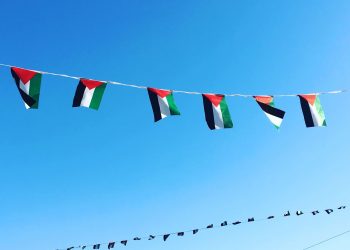This is the story of a girl whose father was murdered when she was two years old. At the age of fifteen, she became an orphan. Then having been married off at a young age, she was deprived of the opportunity to go to school and receive an education. Her husband would leave for months to provide for his family, leaving her alone to raise her son and daughter.
When the daughter became old enough to attend school, the girl—now a young mother—understood the importance of education. Although she did not have the chance to go to school herself, she was adamant that her daughter would. The problem? There were only a handful of schools; those that did exist only accepted boys.
With the support and encouragement of her husband, the mother took the unconventional step of sending her daughter to an all-boys school. Best of all, her daughter topped her class—excelling in all her academics and extra-curriculars. She even went on to deliver the annual speech to an audience full of men and boys.
The mother went on to have more children: six sons, two daughters. Living in their hometown became difficult, so her husband decided to relocate his family to England. Once more—and notwithstanding that neither parents knew a word of English—both mother and father were adamant that their children were to have access to the best education possible.
Despite suffering from severe, chronic illness, the mother woke up every morning and prepared food for eight children. Her husband supported her through it all. He was her sword and assumed the responsibilities of both mother and father while she was ill.
Her eldest daughter graduated with a BSc in Psychology and now works with children who have special needs. As for her six sons, there are two engineers, three involved in the study and practice of medicine, and one who has graduated with a degree in Accounting and Finance. She also has a daughter who graduated with a BA in Law from the University of Cambridge this summer.
This is the story of my mother.
Her story is one of communities all over the world. There are so many women like my mother, who are working hard and defying all odds to ensure their children receive the best education possible.
Poverty remains a significant barrier to access to education, especially for girls. For example, in Nigeria, only 4% of poor young women in the North West Zone can read, compared with 99% of rich young women in the South East. A lack of financial means may prevent parents from providing an education to all of their children. This, in turn, can force parents to choose between the education of their son or their daughter. This means that girls remain in suppressive roles and never achieve financial independence.
However, improving access to education is not only about providing the necessary resources and facilities; it is also about ensuring that children going to school feel safe. Violence is one factor that can negatively impact access to education. For example, in Nicaragua, ‘63% of the children of abused women had to repeat a school year and dropped out of school on average four years earlier than others.’ Similarly, in Zambia, girls who were victims of sexual violence experienced difficulty concentrating, and some dropped out of school because of pregnancy. Furthermore, as a result of ‘school-related gender-based violence’ (SRGBV), the World Bank Group has highlighted that familial fears for the safety of girls travelling to school have hindered access to education in Africa, South Asia, and the Middle East.
In Pakistan, children who should be in school often have no choice but to work to provide for their families. Nearly 58% of children between ages 5-16 are not in school in Khyber-Pakhtunkhwa, Pakistan.
Child marriage is also a challenge as it represents the second-class status of girls in society. Females are viewed as a financial burden, meaning that they are married at a young age. For example, over 50% of Bangladeshi women who are now in their mid-20s were married before they turned 18.
Changing views on access to education for females will not be easy, but we must try — even if it takes decades to achieve meaningful progress.
Assisting families who are struggling to afford education for their children is a good place to start. This may mean providing books, uniforms, or even a safe route to school.
This year, I initially planned to travel to the Pashtun tribal areas with my family to raise donations to help girls like my mother. However, due to coronavirus, travelling to the region has become more difficult. So, I intend to fundraise now and visit the region in a year’s time.
Please donate anything that you can, and rest assured that 100% of your proceeds will go directly towards helping mothers who cannot afford to send their children to school. Remaining funds will be given to families who cannot afford healthcare or travel costs to hospitals. I will be documenting my journey and where your donations go.







